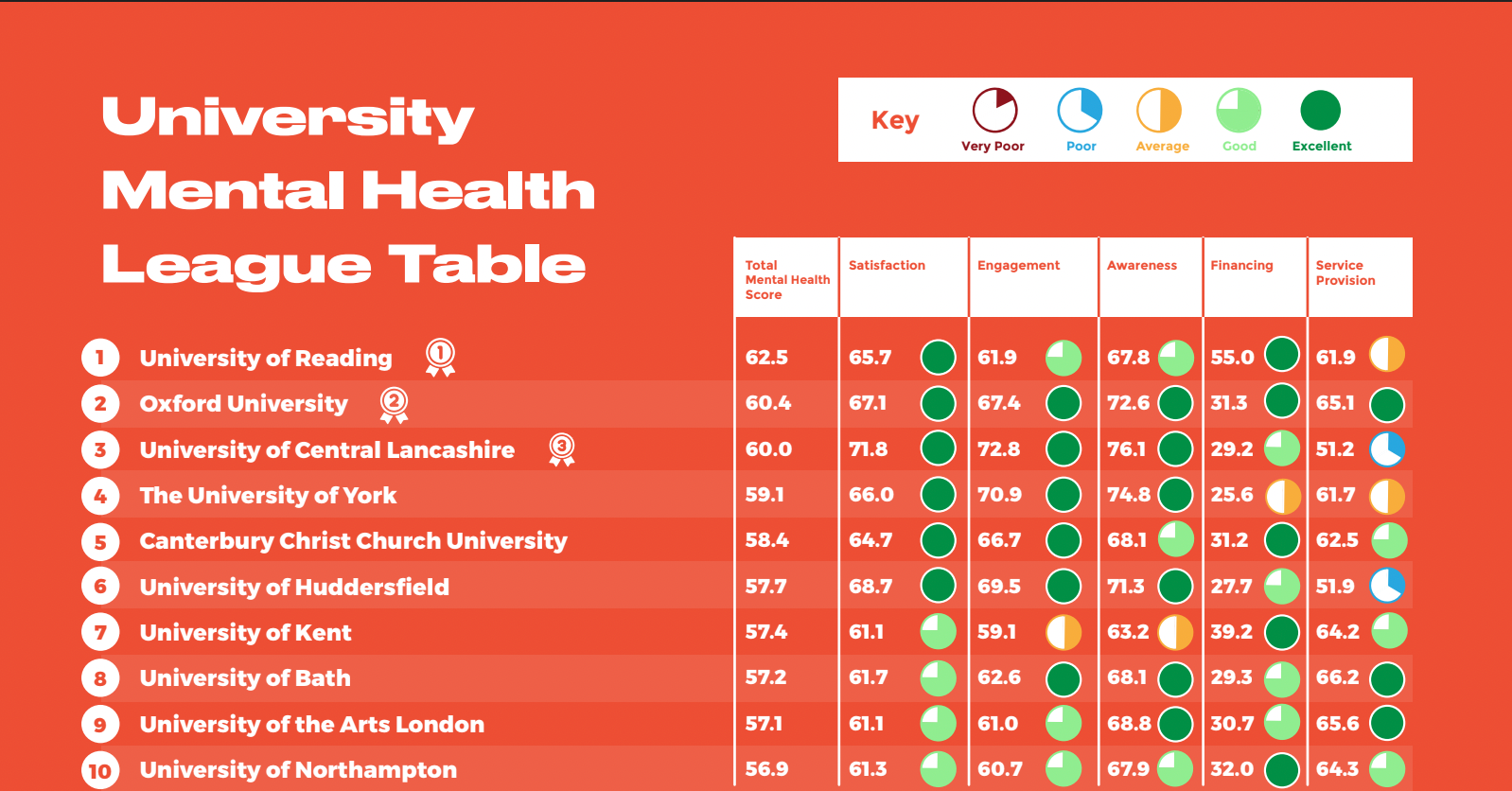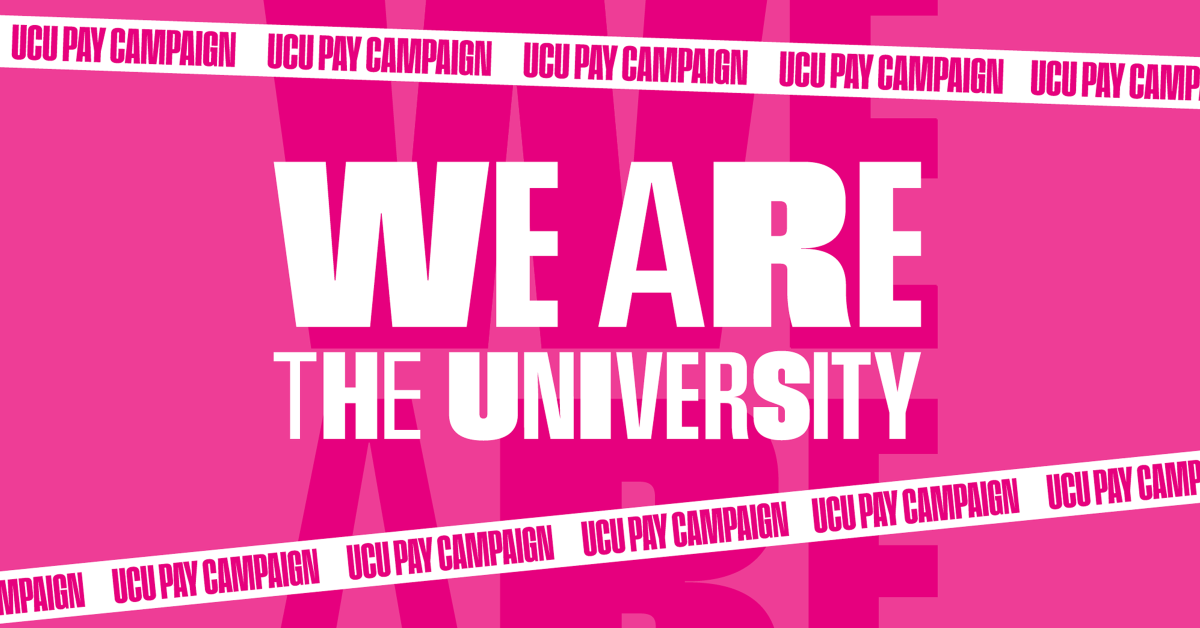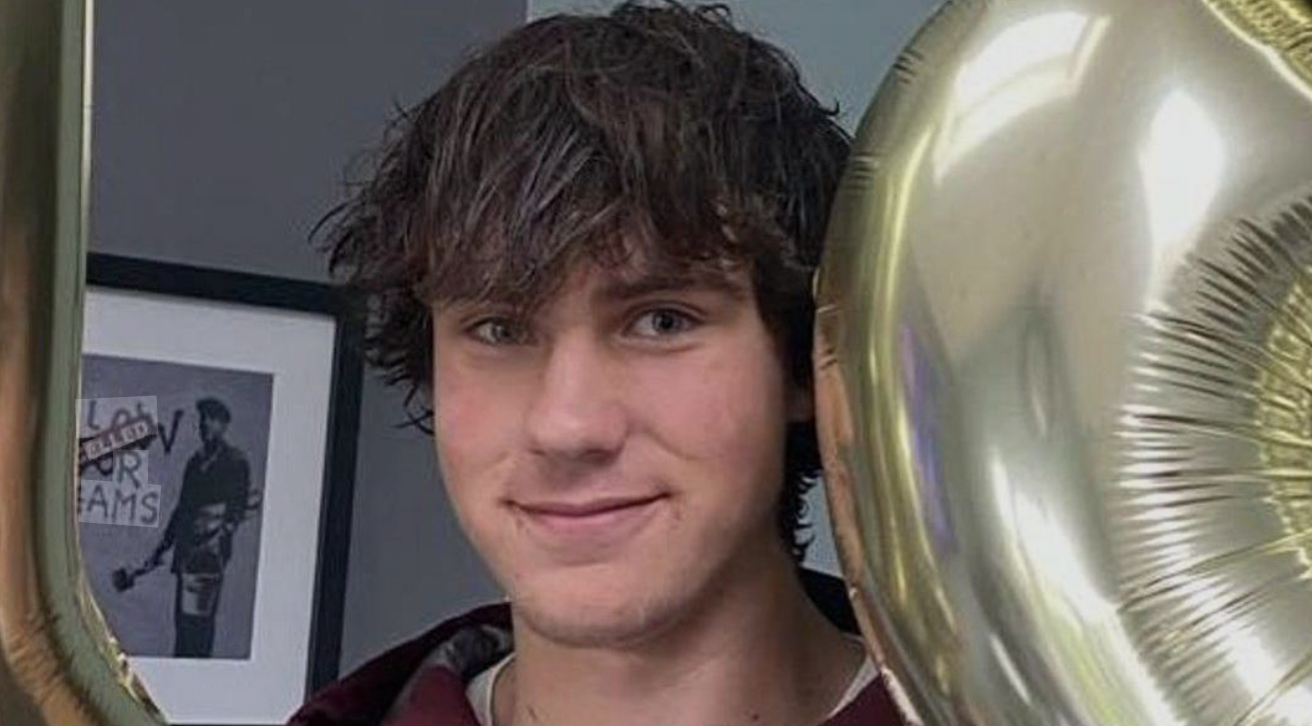Mark Ross, Co-Editor in Chief
The University of Bristol has been ranked 68th out of 80 UK Universities in the first ever University Mental Health League Table.
The league table, created by the men’s mental health charity, HUMEN, ranks universities based on five categories to give each a score out of one hundred. The categories include student satisfaction with university mental health services, staff training and mental health budgets.
Topping the table is the University of Reading (with an overall score of 62.5), closely followed by Oxford University and the University of Central Lancashire.

And the worst performing Universities include the University of Birmingham, Lancaster University and the University of Bedfordshire, all sitting around the 33 mark.
Bristol, with its score of 41.3, sits in a measly 68th, having been given a ‘Very poor’ (the worst classification) in four out of the five categories.
The report also highlights the lack of government support for universities. A recent £3 million pound support package, for example, works out as a meagre £1 of support per student nationwide (given the 2.6 million or so students in higher education in the UK).
And problems surrounding mental health are not just reserved to lower-ranking universities. The report found that, across the UK, 47 per cent of students ‘Believe that mental health difficulties during their time in higher education had a negative impact on their studies’.
In the wake of these findings, HUMEN – founded by ex-Harry Potter actor, River Hawkins – has offered advice to universities looking to improve their mental health offerings. This includes advice to ‘Train and equip staff’, ‘Invest in services’ and ‘Remove the stigma’ surrounding mental illnesses
A University of Bristol spokesperson said: “The health, welfare and best interests of our students and staff remain the University of Bristol’s top priority. We have made huge strides forward in recent years with the introduction of new models of support, reducing waiting times, and providing comprehensive training for staff, as well as introducing a range of initiatives to encourage healthy behaviours. An example of this is our popular Science of Happiness course – the first of its kind in the UK – which educates students about what is scientifically proven to make us happier.
“The results of this new table are obviously very disappointing, especially given the amount of work, training and investment we have undertaken over the last five years to adapt and improve our mental health and wellbeing services for students.
"The results in no way reflect the dedication of our staff and the support they offer to students, nor do they tally with our own extensive student surveys and the largely positive feedback we receive about our services.
“Along with other universities, we have concerns about the methodology used for this table. We feel strongly that the complex issue of students’ mental health is not an appropriate subject for league tables, and have serious concerns that it might deter students from reaching out, which is the exact opposite of what we’re working hard to encourage.
A University of Bristol spokesperson said: “The health, welfare and best interests of our students and staff remain the University of Bristol’s top priority. We have made huge strides forward in recent years with the introduction of new models of support, reducing waiting times, and providing comprehensive training for staff, as well as introducing a range of initiatives to encourage healthy behaviours. An example of this is our popular Science of Happiness course – the first of its kind in the UK – which educates students about what is scientifically proven to make us happier.
“The results of this new table are obviously very disappointing, especially given the amount of work, training and investment we have undertaken over the last five years to adapt and improve our mental health and wellbeing services for students.
"The results in no way reflect the dedication of our staff and the support they offer to students, nor do they tally with our own extensive student surveys and the largely positive feedback we receive about our services.
“Along with other universities, we have concerns about the methodology used for this table. We feel strongly that the complex issue of students’ mental health is not an appropriate subject for league tables, and have serious concerns that it might deter students from reaching out, which is the exact opposite of what we’re working hard to encourage.
"Any student needing support should not be afraid to reach out to our Wellbeing services.
“We have asked Humen to provide us with more details, both about Bristol’s performance and their methodology, to enable us to assess the veracity of the ranking and see whether it highlights areas where further improvements can be made.
“We must never be complacent and always seek to better understand what services are working well and where potential improvements can be made to ensure our students are able to access the very best support.”
Featured image | Epigram / Cameron ScheijdeHow do you think the University could improve its mental health support services? Let us know on twitter or instagram.









